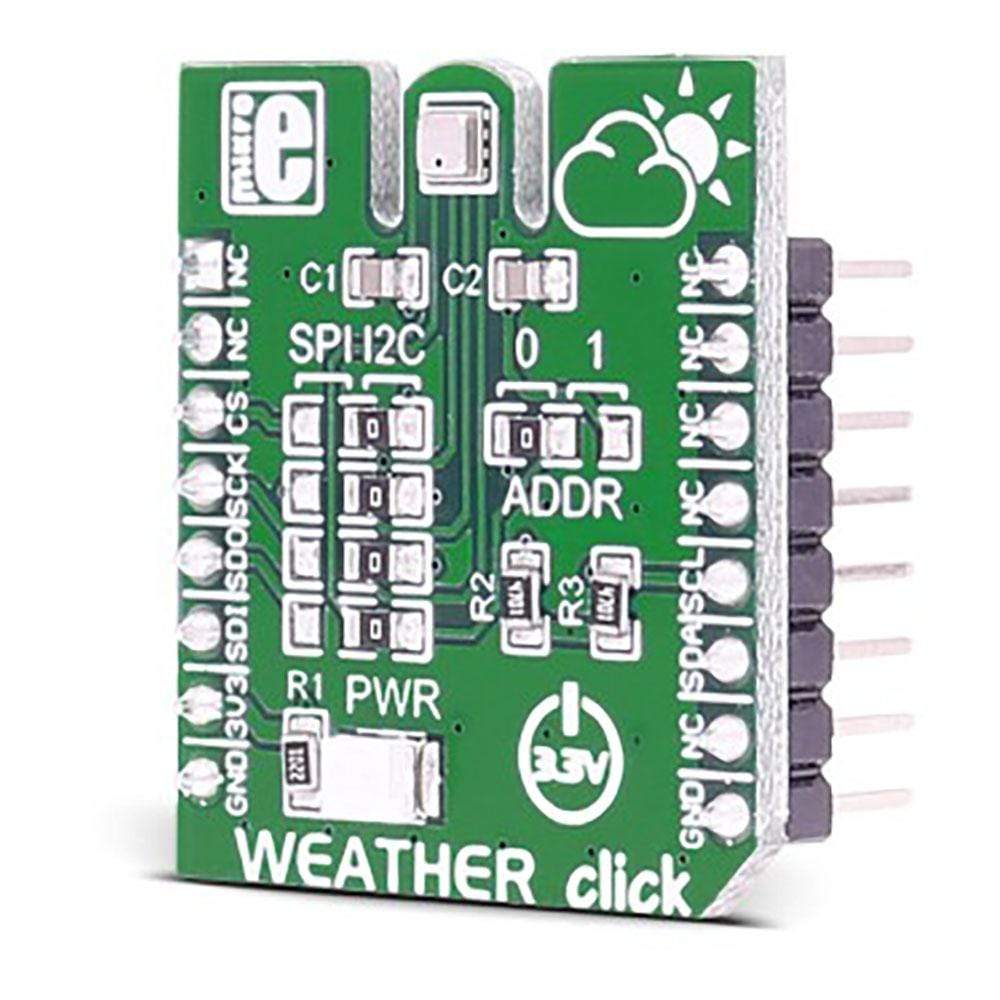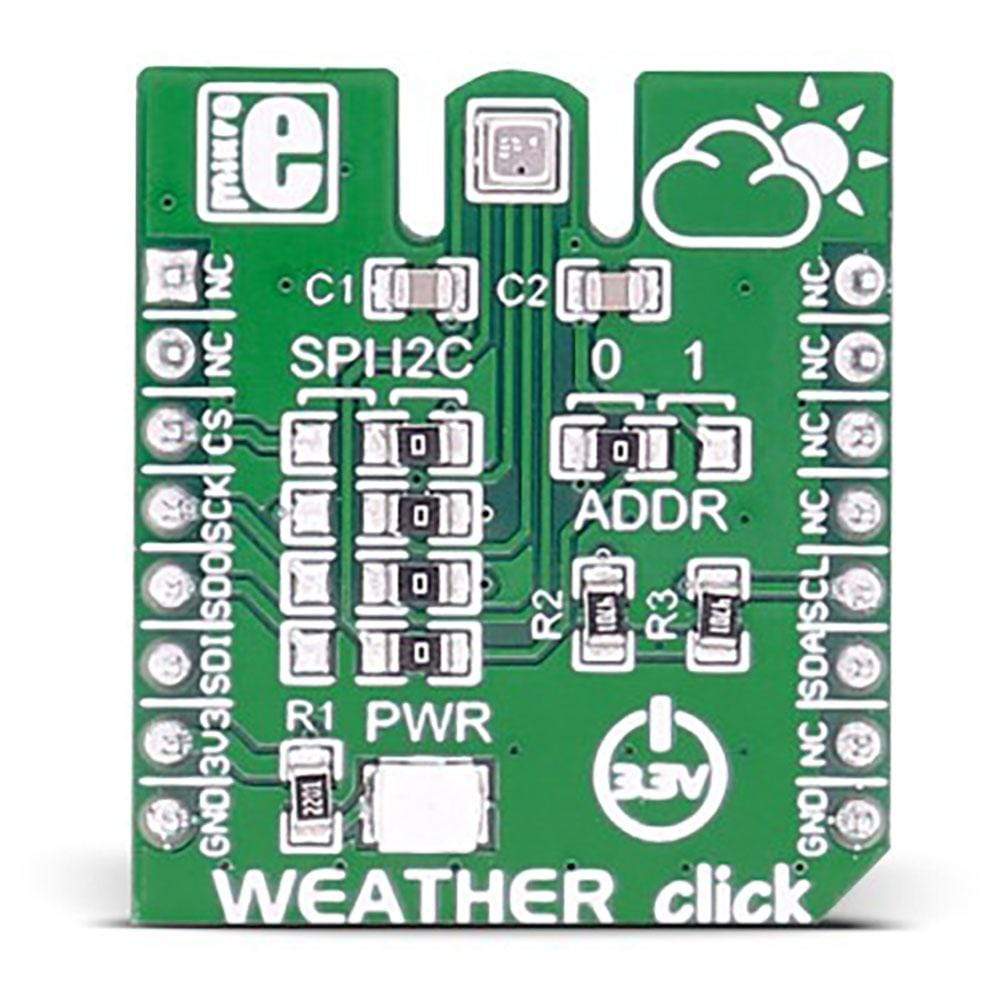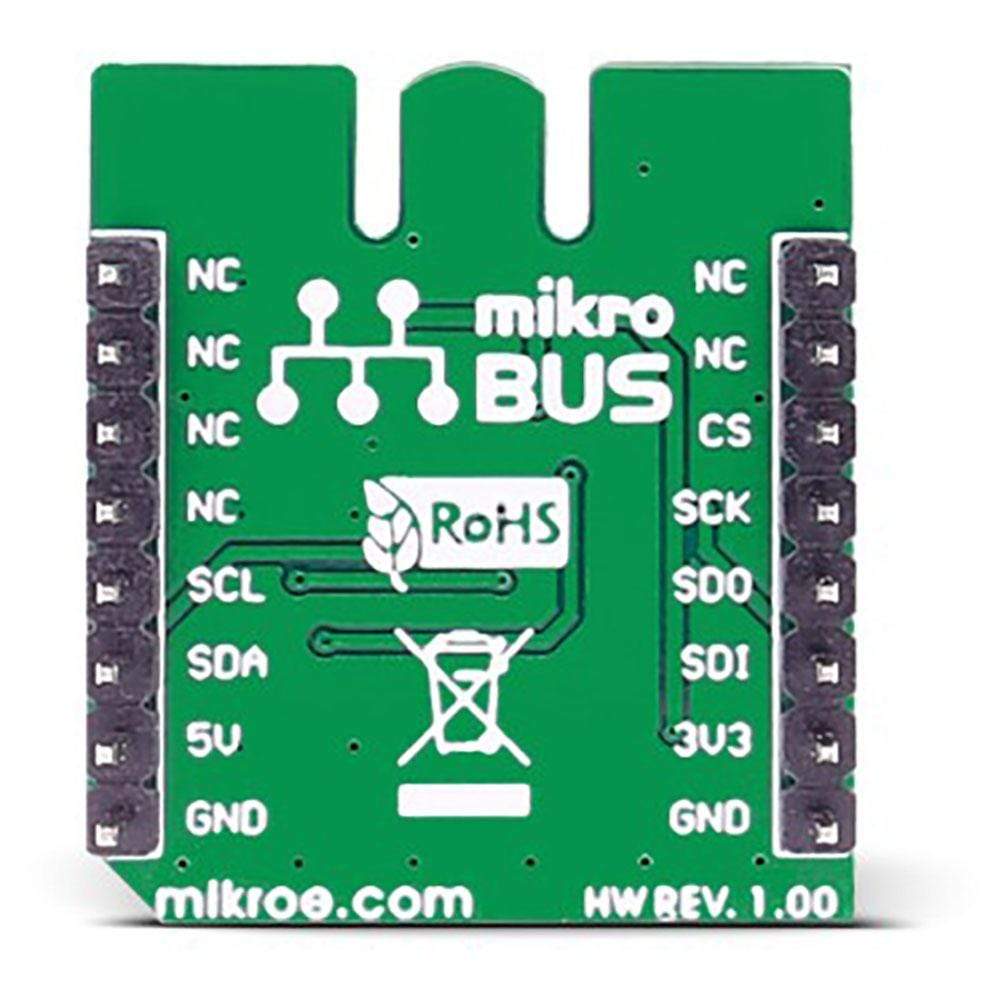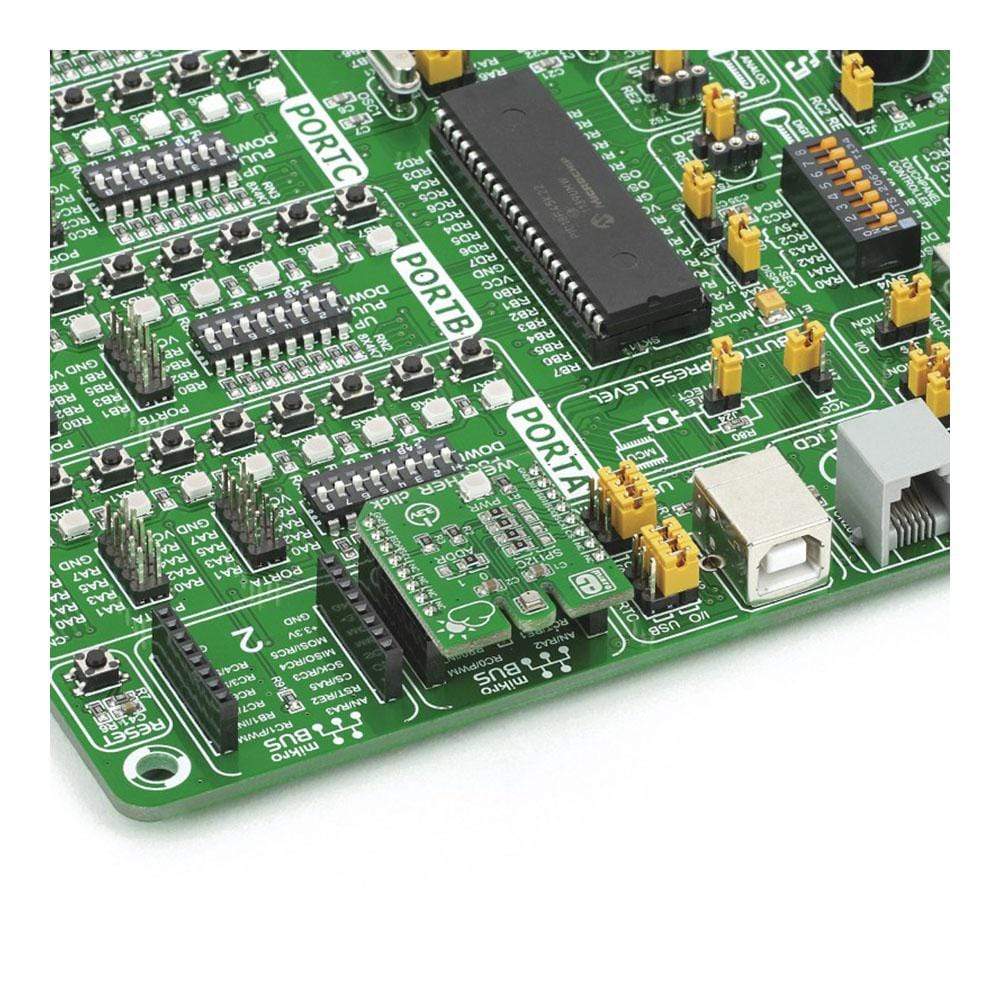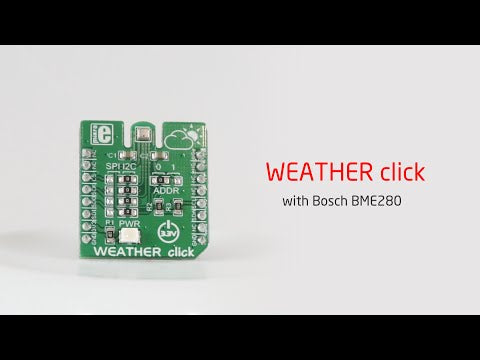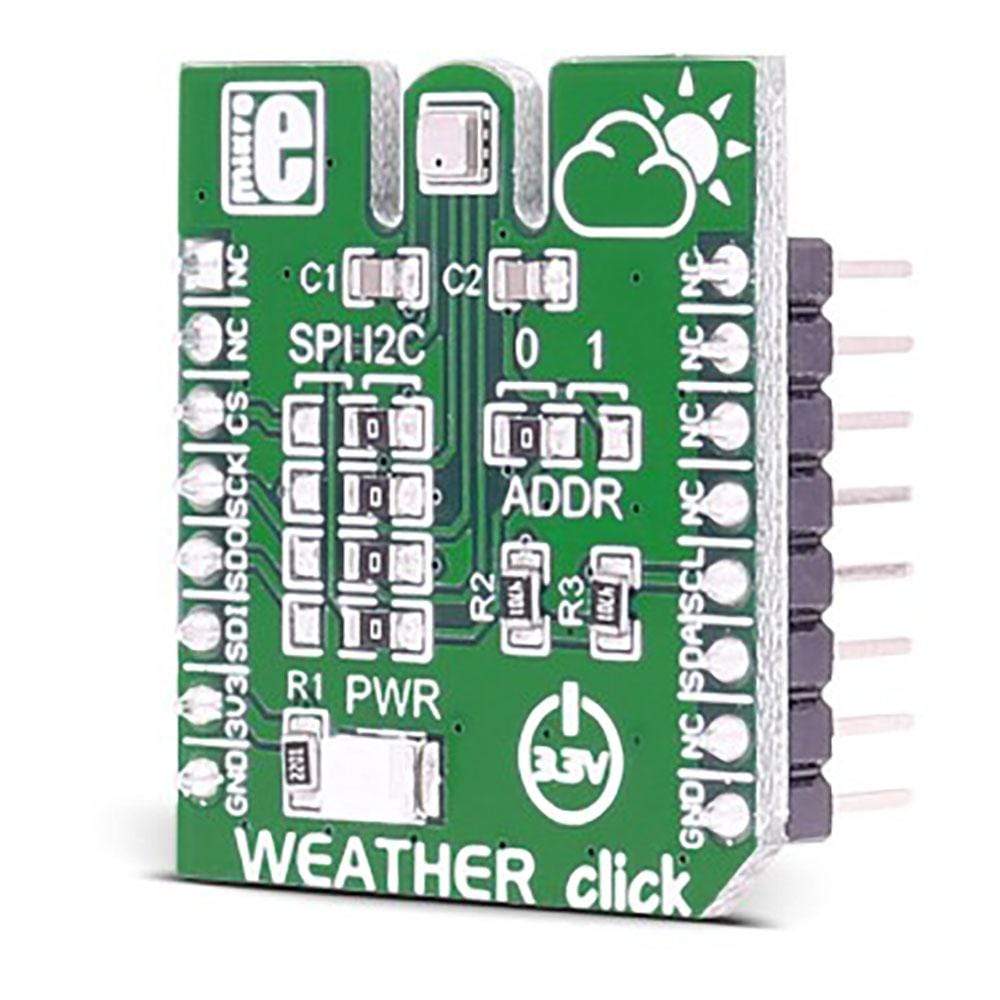
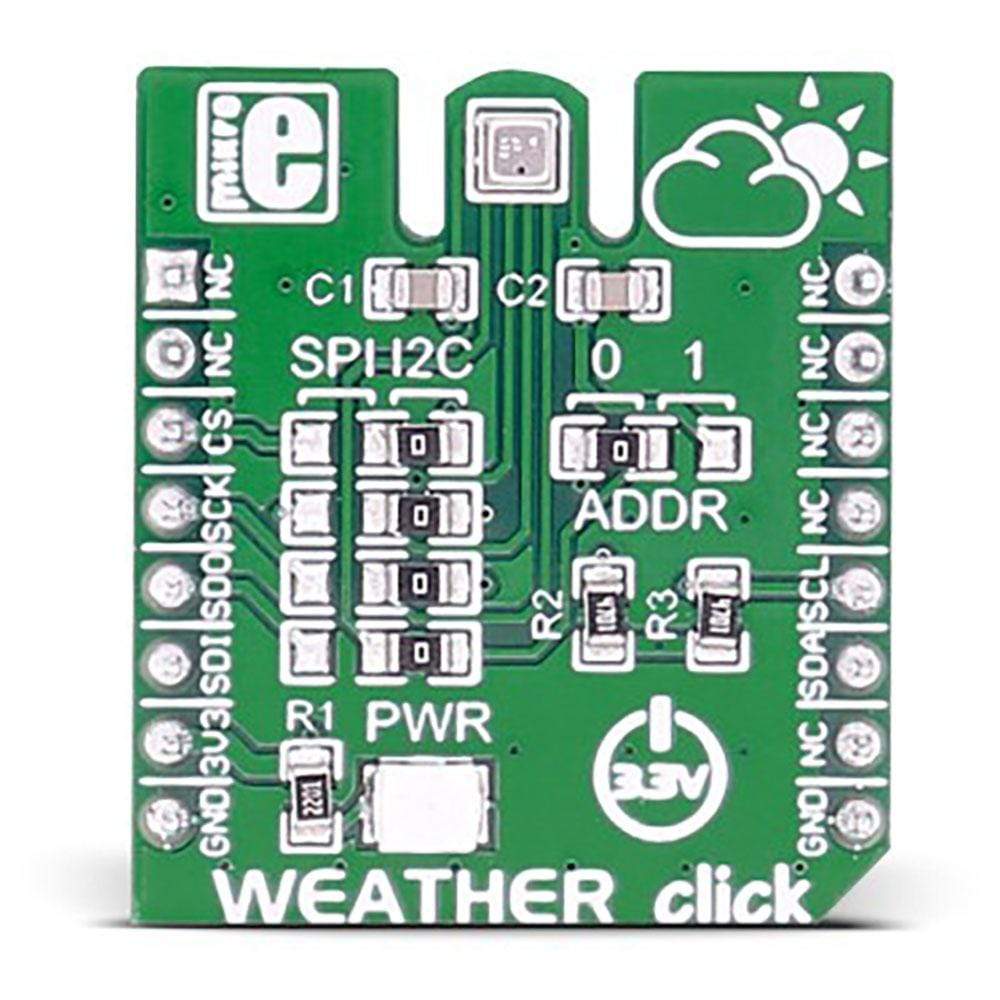
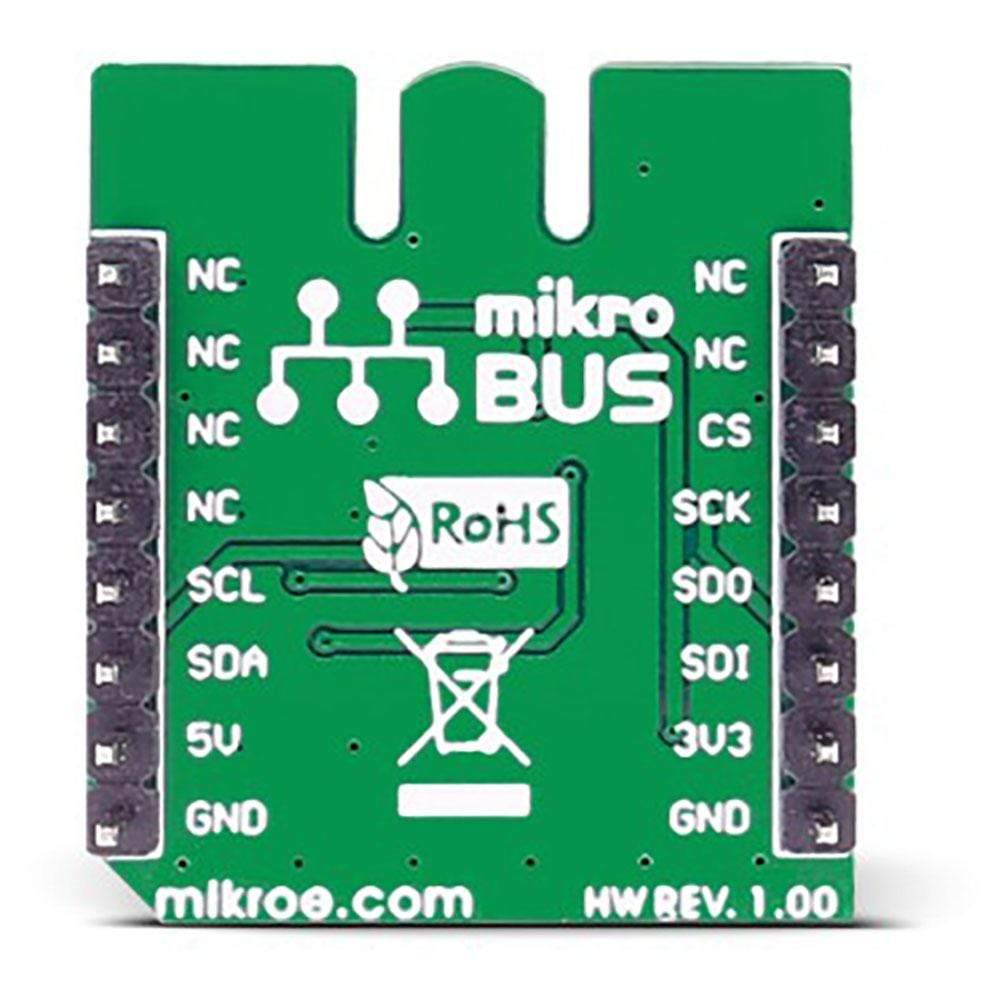
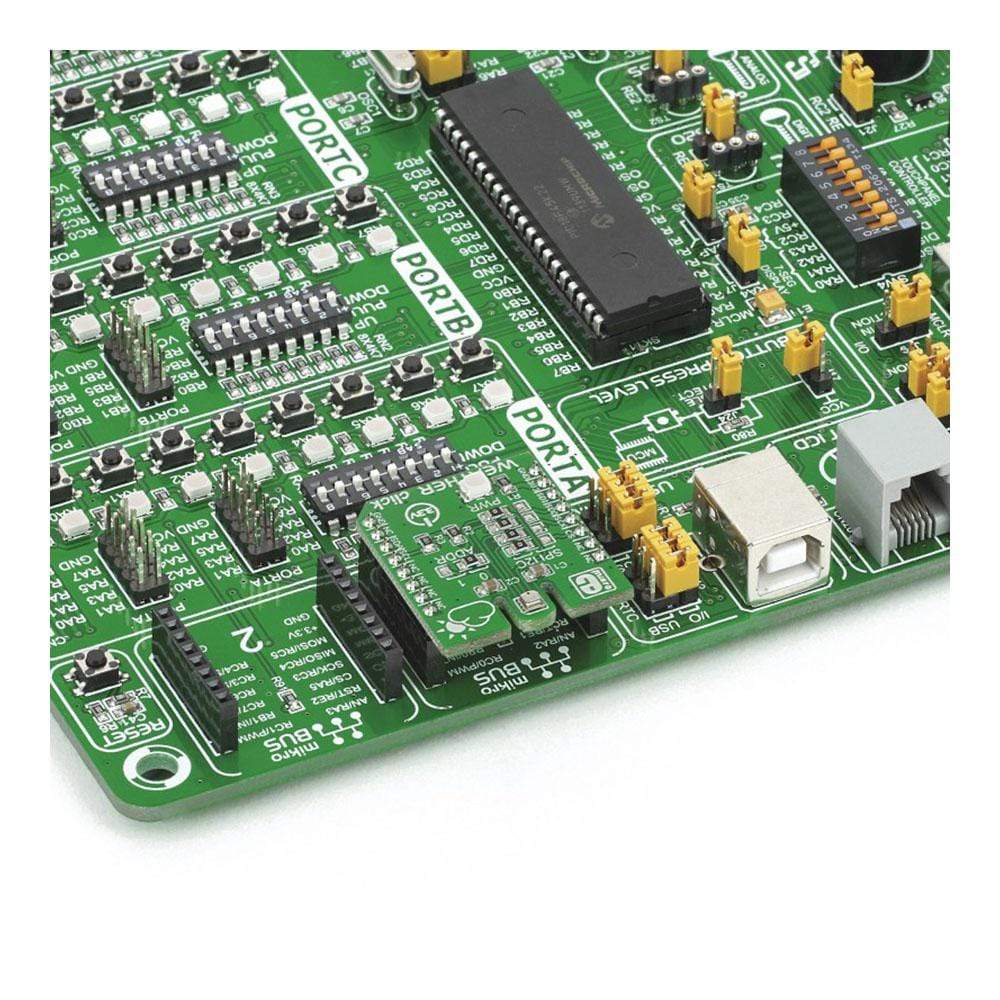
Overview
The Weather Click Board™ is based on the BME280 integrated environmental unit from Bosch.
It's a sensor that detects humidity, pressure and temperature, specifically designed for low current consumption and long term stability.
Downloads
The Weather Click Board™ carries BME280 integrated environmental unit from Bosch. It's a sensor that detects humidity, pressure, and temperature, specifically designed for low current consumption and long-term stability. The click is designed to work on a 3.3V power supply. It communicates with the target microcontroller over SPI or I2C interface.
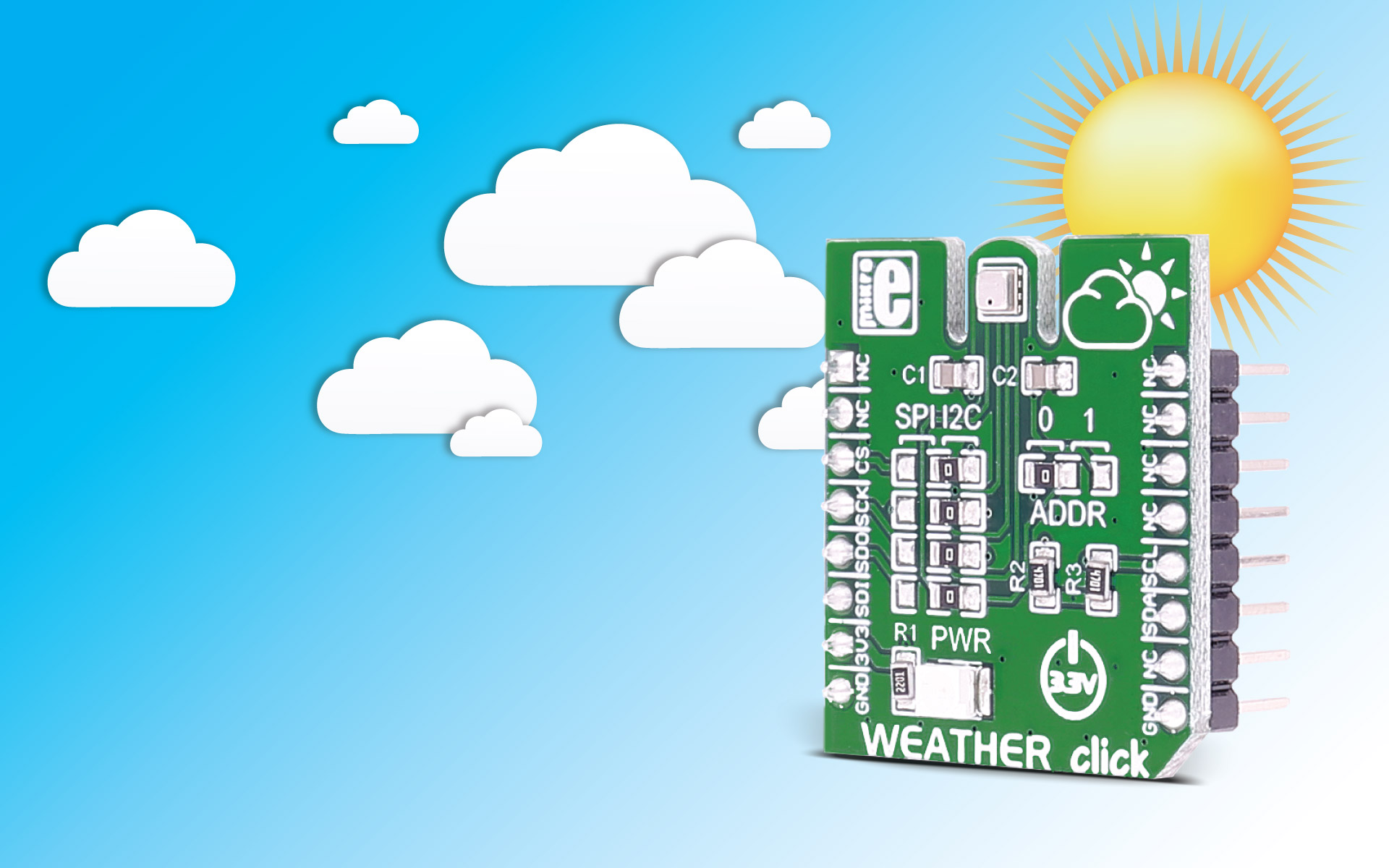
BME280 Features
The BME280 is as combined digital humidity, pressure and temperature sensor based on proven sensing principles.
The BME280 IC has high accuracy and reliability for all three sensors. The humidity sensor has a response time of just one second and it's accurate up to ±3% RH. The pressure sensor has sensitivity error of ±0.25% which is equivalent to 1m at 400m height change). The humidity and pressure sensors can operate independently from each other. Finally, the temperature sensor has a high resolution (up to 20 bit, when IIR filter is enabled) and low noise. The chip has three operating modes: sleep, forced, and normal.
SPECIFICATIONS
| Type | Environmental |
| Applications | Context awareness, home automation control, personalized weather stations, sport and fitness tools and so on |
| On-board modules | Bosch BME280 |
| Key Features | Three sensors in one: pressure, humidity, temperature. Humidity sensor response time: 1 sec. Multiple operating modes: sleep, force, normal |
| Interface | I2C,SPI |
| Compatibility | mikroBUS |
| Click board size | S (28.6 x 25.4 mm) |
| Input Voltage | 3.3V |
PINOUT DIAGRAM
This table shows how the pinout of the Weather Click Board™ corresponds to the pinout on the mikroBUS™ socket (the latter shown in the two middle columns).
| Notes | Pin |  |
Pin | Notes | |||
|---|---|---|---|---|---|---|---|
| NC | 1 | AN | PWM | 16 | NC | ||
| NC | 2 | RST | INT | 15 | NC | ||
| Chip select | CS | 3 | CS | TX | 14 | NC | |
| SPI clock | SCK | 4 | SCK | RX | 13 | NC | |
| SPI Master Input Slave Output | MISO | 5 | MISO | SCL | 12 | SCL | I2C Clock |
| SPI Master Output Slave Input | MOSI | 6 | MOSI | SDA | 11 | SDA | I2C Data |
| Power supply | +3.3V | 7 | 3.3V | 5V | 10 | NC | |
| Ground | GND | 8 | GND | GND | 9 | GND | Ground |
JUMPERS AND SETTINGS
| Designator | Name | Default Position | Default Option | Description |
|---|---|---|---|---|
| JP1, JP2, JP3 and JP5 | Interface Selection | Right | I2C | Jumpers for selection between I2C or SPI communications |
| JP4 | ADDR | Left | Bit 0 | I2C Address bit = 0 |
| General Information | |
|---|---|
Part Number (SKU) |
MIKROE-1978
|
Manufacturer |
|
| Physical and Mechanical | |
Weight |
0.024 kg
|
| Other | |
Country of Origin |
|
HS Code Customs Tariff code
|
|
EAN |
8606015076928
|
Warranty |
|
Frequently Asked Questions
Have a Question?
Be the first to ask a question about this.

